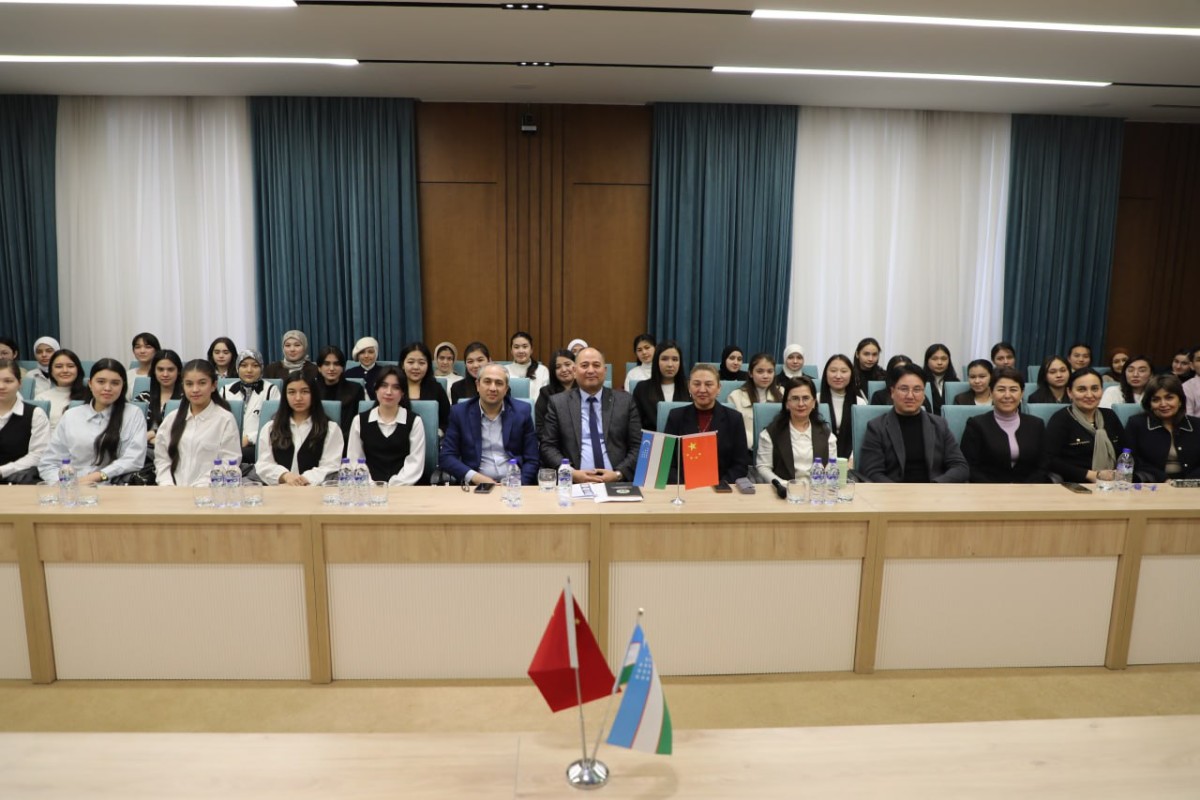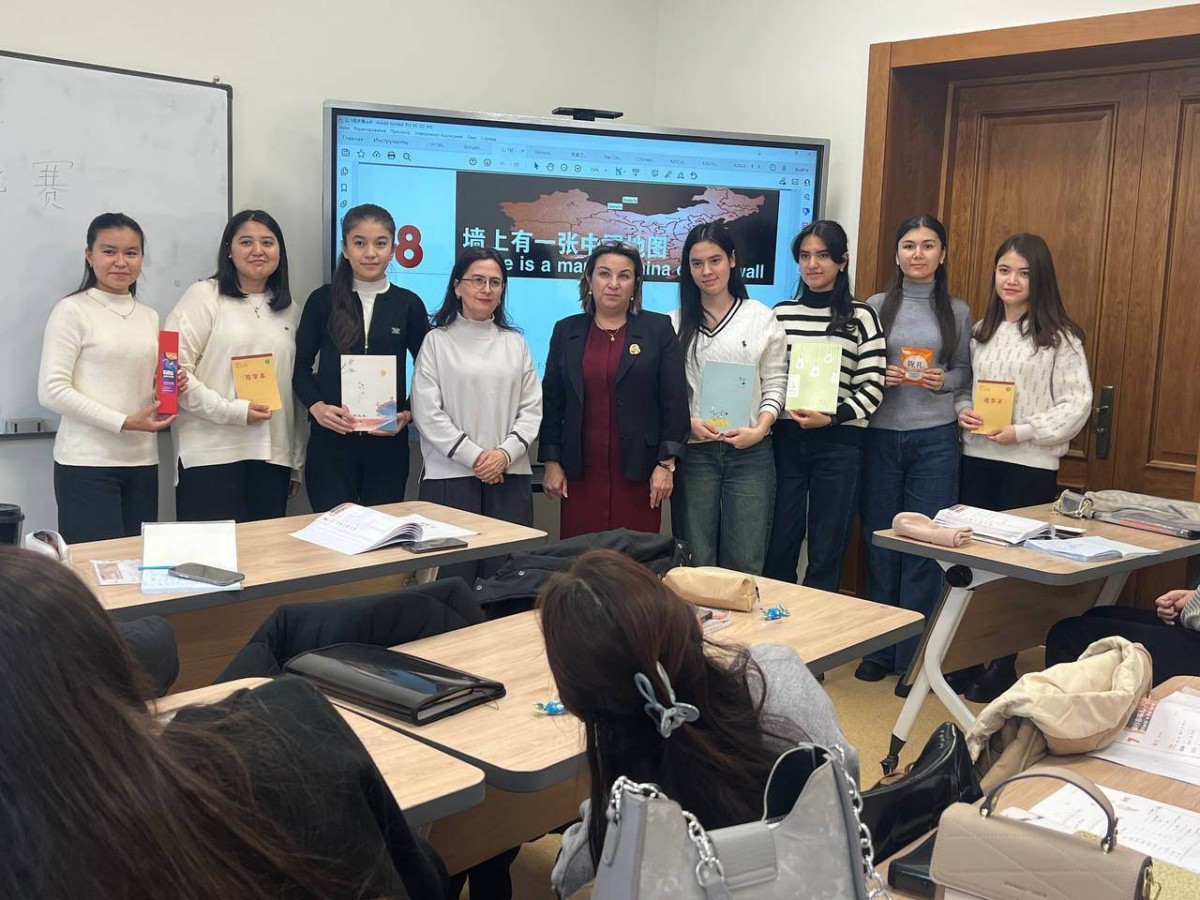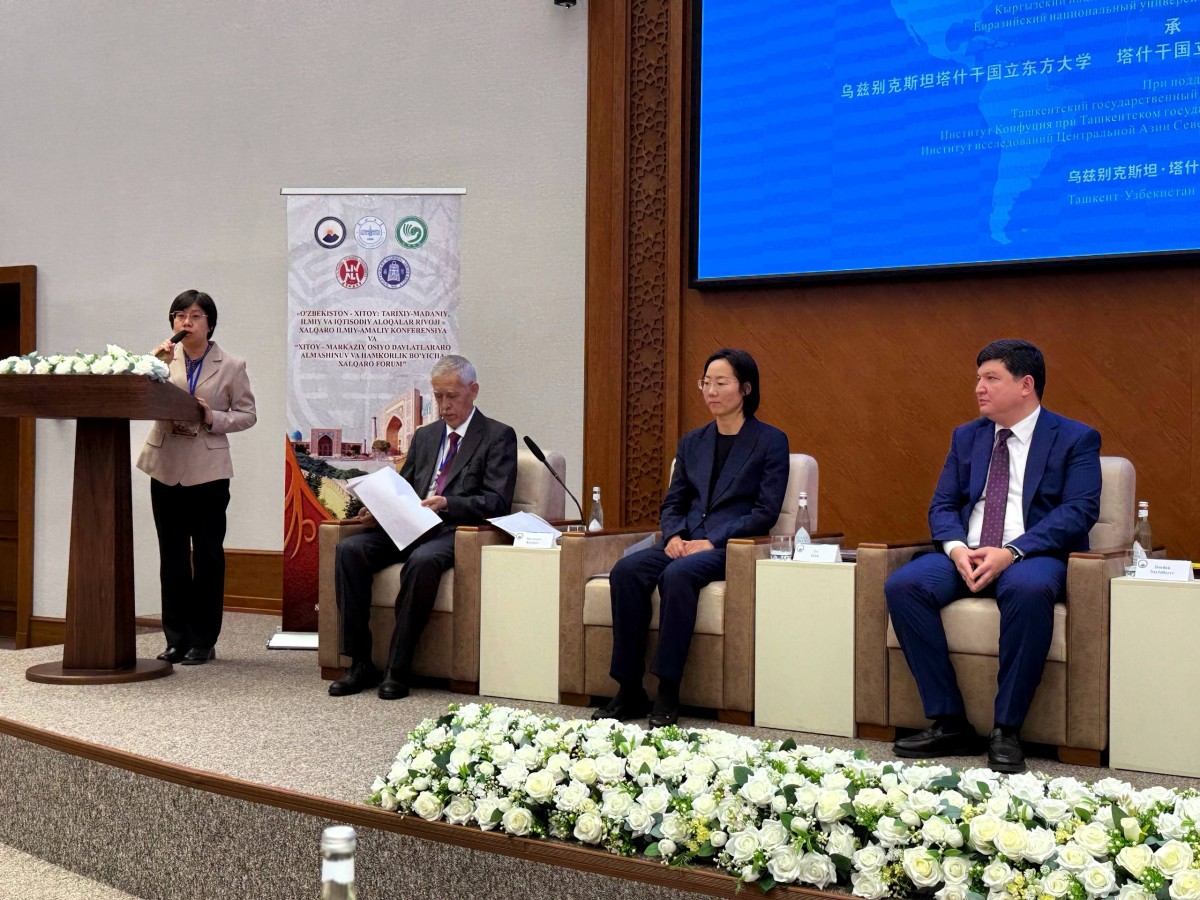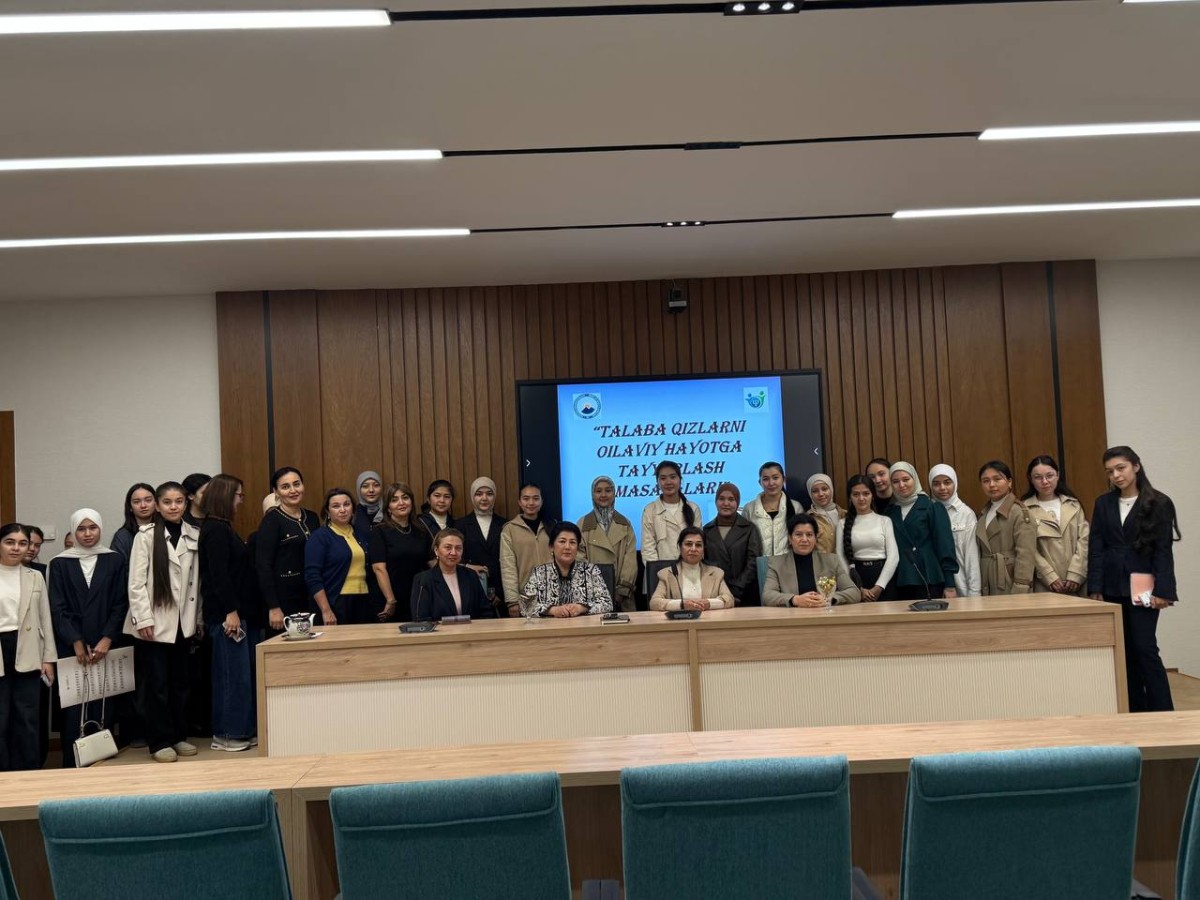HIGHER SCHOOL OF CHINESE STUDIES
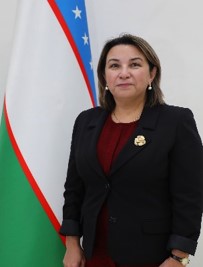 |
Khasanova Feruza | |
| Scientific degree and rank: | Doctor of philological Sciences, Associate Professor | |
| Position: | Chairperson | |
| Reception time: | Every day (14:00-16:00) | |
| Tel.: | +99871 233-34-24 | |
| E-mail: | khasanovaferuza@inbox.ru | |
The Higher School of Chinese Studies is considered a descendant of the Turkestan University of Oriental Studies (1918). Among the unforgettable figures of the 20th century during this period, it is worth mentioning that the contributions of our teachers I.A. Kissen and U.M. Mamatokhunova, who founded this school, left a significant mark not only in the development of Chinese studies, but also in world linguistics and literary studies. Later, senior teachers O.A. Vagin, N. Khokhlov, I. Rozbokiyev, M.I. Muldakulova, G.I. Larionov, N.O. Levushkina, M.I. Molozhatova made their worthy contribution to the rise of the Higher School of Chinese Studies. In the early days of the Faculty of Oriental Languages, lectures on Chinese language and literature were given by B.A. Pestovsky. In 1924, the Turkestan University of Oriental Studies was incorporated into the TSU (now the National University of Uzbekistan named after Mirzo Ulugbek) as the Faculty of Oriental Studies. By this time, the ranks of Chinese language teachers included the prominent linguist Professor Ye.D. Polivanov, who created the 304-page book “Modern Chinese Grammar” on this language. By September 1930, the Oriental Faculty of the National University ceased its activities. It was restored in 1944. In 1951, under the leadership of senior lecturer M.I. Molozhatova, the Department of Uyghur Philology, one of the departments of the faculty, began teaching Chinese to students. In 1957, the Department of Chinese Philology was established for the first time in the history of education in Uzbekistan, replacing Uyghur Philology. At that time, the department established in Uzbekistan was the only center in the former Soviet Union that trained Sinology specialists not only in our country, but also in the entire Central Asia. If we summarize the scientific path of the department, by 1980 the department began to supply Sinology scholars not only to Central Asia (Kazakhstan, Kyrgyzstan), but also to countries such as Bulgaria, Mongolia, Poland and Laos. So, this indicates that by the 70s-80s of the last century the Department of Chinese Philology was operating as an international department.
On September 2, 2014, the Resolution of the President of the Republic of Uzbekistan No. PQ-2228 was adopted. According to this resolution, the Faculty of Chinese Studies was opened within the Tashkent State University of Oriental Studies. Chinese Philology was included in this faculty and began to operate under the name of the Department of “Chinese Philology”.
Since September 2024, the Department of “Chinese Philology” has been operating under the name of the “Higher School of Sinology”. Currently, 21 professors and teachers are engaged in pedagogical and scientific activities at the higher school.
The teaching staff of the higer school
- Feruza Khasanova – Chairperson, Associate Professor.
- Akram Karimov – Professor.
- Sabokhat Khashimova – Professor.
- Jasur Ziyamuxammedov – Professor.
- Lola Sultanova – Associate Professor.
- Umida Mavlyanova– Associate Professor.
- Shukriya Nazirova– Associate Professor.
- Sayyora Nazarova – Associate Professor.
- Ozod Ochilov– Associate Professor.
- Tair Akimov – Associate Professor.
- Nigina Rasuleva– Assistant professor.
- Noiba Valiyeva– Assistant professor.
- Shakhnoza Komilova– Assistant professor.
- Shakhnoza Mukhamedjanova – Assistant professor.
- Dilshod Badalbayev– Assistant professori.
- Ziyoda Artikova– Assistant professor.
- Farzona Norova– Assistant professor.
- Nurali Eshpulatov– Assistant professor.
- Sevinch Ashirbaeva – SAssistant professor.
Partner organizations of higher school
• Literature Museum at the University of Uzbek Language and Literature named after Alisher Navoi
• Center for Oriental Manuscripts named after Abu Raykhon Beruni of the Academy of Sciences of Uzbekistan
• Confucius Institute at Tashkent State University
• China Sil-Road Edu&Tec Co., Ltd
• Chirchik Chinese Language Specialized High School No. 18
• Gansu University of Political Science and Law
• Hunan Pedagogical University
• Jining Polytechnic Institute
• Lanzhou University
• Lanzhou University Institute of Political Science and International Relations
• Lanzhou University Institute of History and Culture
• Liaoning Normal University
• Central University for Nationalities (Minzu University)
• Beijing Language and Culture University
• Shaanxi Pedagogical University
• Shanghai Foreign Studies University
• Shanghai University School of Economics
• Shanghai University School of Liberal Arts
• Shanghai Cooperation Organization Institute of People’s Diplomacy at Shanghai University
• Northwest Minzu (Northwest University)
• Northwest Minzu University
• Xi’an International Studies University
• Yunusabad District Academic Lyceum No. 325 under Tashkent State University of Education
• Tashkent Chinese Language Specialized High School No. 59
• Tianjin Polytechnic Institute of International Relations
• China-Foreign Language Exchange and Cooperation Center of the Ministry of Education of China
• UNESCO Association in Gansu Province of China
• “Children of the Example” project organized by the Youth Affairs Agency
Photo albums on the activities of the higher school
